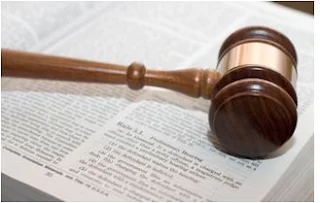 |
| Sheikh Mohammed bin Rashid Al Maktoum, Vice President and Prime Minister of the UAE and Ruler of Dubai |
Enhanced Independence and
Structure:
The law reaffirms the
independent status of the DIFC Courts, encompassing the Court of Appeal, the
Courts of First Instance, and the Small Claims Court.
These courts are mandated to
exercise their duties and jurisdictions autonomously, adhering to the
provisions of Law No. (2) of 2025, the broader DIFC legal framework, and the
courts' established rules.
Appointment and Authority:
A key aspect of the new law is
the detailed specification of mechanisms for appointing the President and
Director of the DIFC Courts. This includes outlining their respective
jurisdictions and responsibilities and ensuring a clear and efficient leadership structure.
Introducing a Mediation
Services Centre for Amicable Dispute Resolution:
Recognizing the importance of
alternative dispute resolution, Law No. (2) of 2025 mandates the establishment
of a dedicated Mediation Services Centre within the DIFC Courts. This center
will provide a platform for parties to engage in mediated negotiations,
facilitated by registered mediators, to achieve amicable settlements. The
Centre’s President will determine its operating system, jurisdiction, and
procedural guidelines. This addition underscores the DIFC Courts’ commitment to
offering diverse and effective dispute resolution options.
Exclusive Jurisdiction
Clarified:
The new law explicitly defines
the DIFC Courts’ exclusive jurisdiction, granting them the authority to hear
and adjudicate civil, commercial, and labor claims and lawsuits involving the
Centre’s bodies or institutions. This ensures a specialized and efficient
handling of disputes within the DIFC ecosystem.
Comprehensive Procedural
Framework:
Law No. (2) of 2025 provides a
detailed framework covering various aspects of litigation, including:
- Powers of the DIFC Courts:
Clearly outlining the scope of judicial authority.
- Litigation Procedures:
Standardizing processes for filing and conducting lawsuits.
- Evidence:
Defining rules for the admissibility and presentation of evidence.
- Urgent Matters:
Establishing procedures for expedited handling of time-sensitive cases.
- Enforcement:
Streamlining the process of enforcing court judgments.
- Exemption from Pledge for Compensation:
Addressing financial aspects related to litigation.
- Technical Defects and Procedural Errors:
Defining how such issues are handled.
- Statute of Limitations:
Setting time limits for legal actions.
Repeal of Previous
Legislation:
This new law supersedes Centre
Law No. (10) of 2004 and Law No. (12) of 2004, which previously governed the
DIFC Courts. Any conflicting provisions in other existing legislation are also
repealed, ensuring a unified and updated legal framework.
Impact and Significance:
Law No. (2) of 2025 represents
a significant step in enhancing the efficiency, independence, and effectiveness
of the DIFC Courts. By providing a comprehensive and modern legal framework,
Dubai aims to solidify the DIFC’s position as a leading international financial
center with a robust and reliable judicial system.



